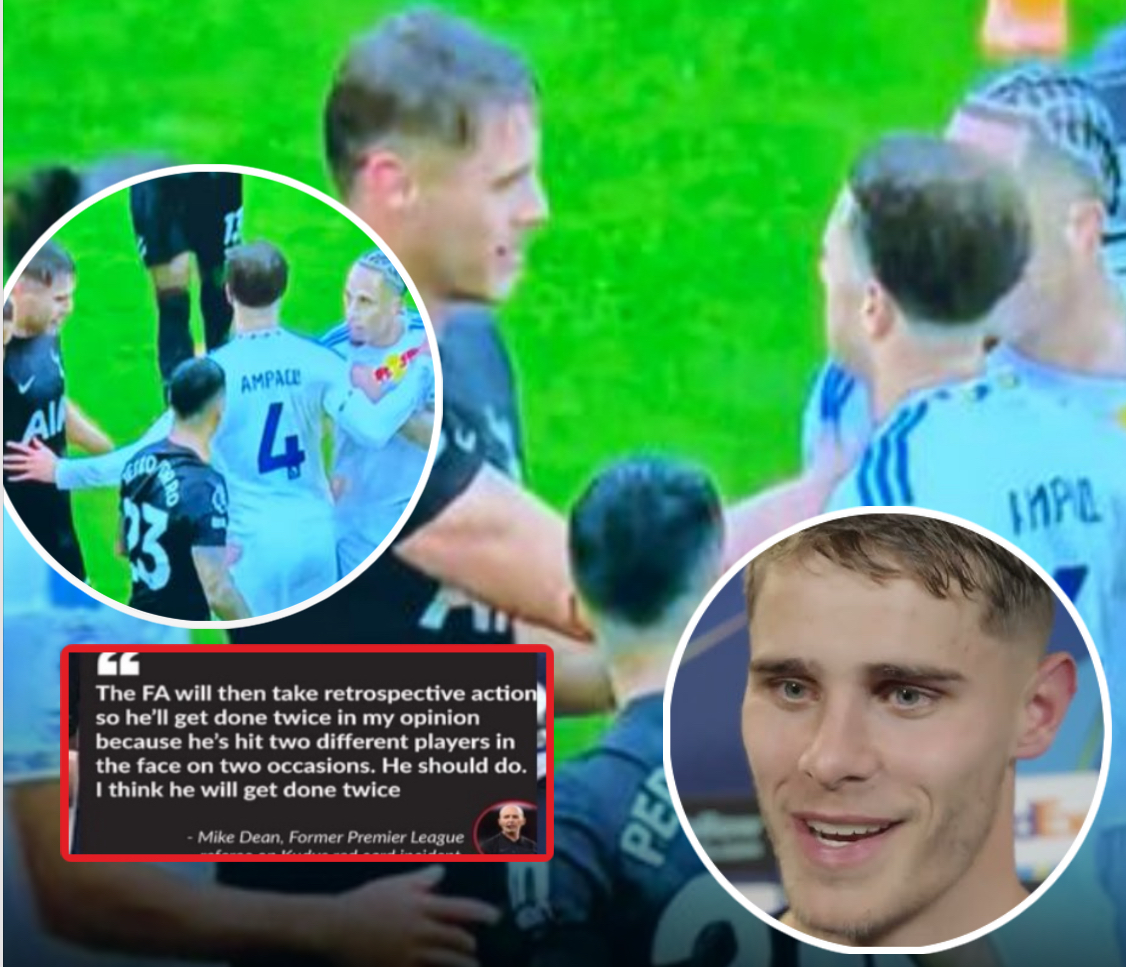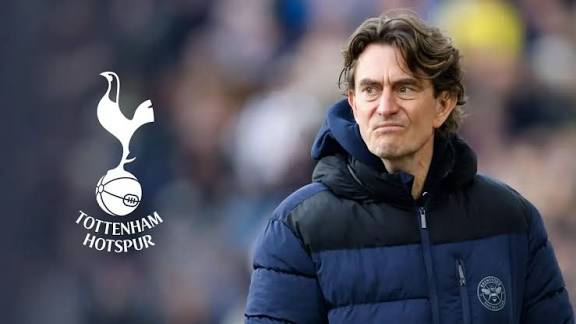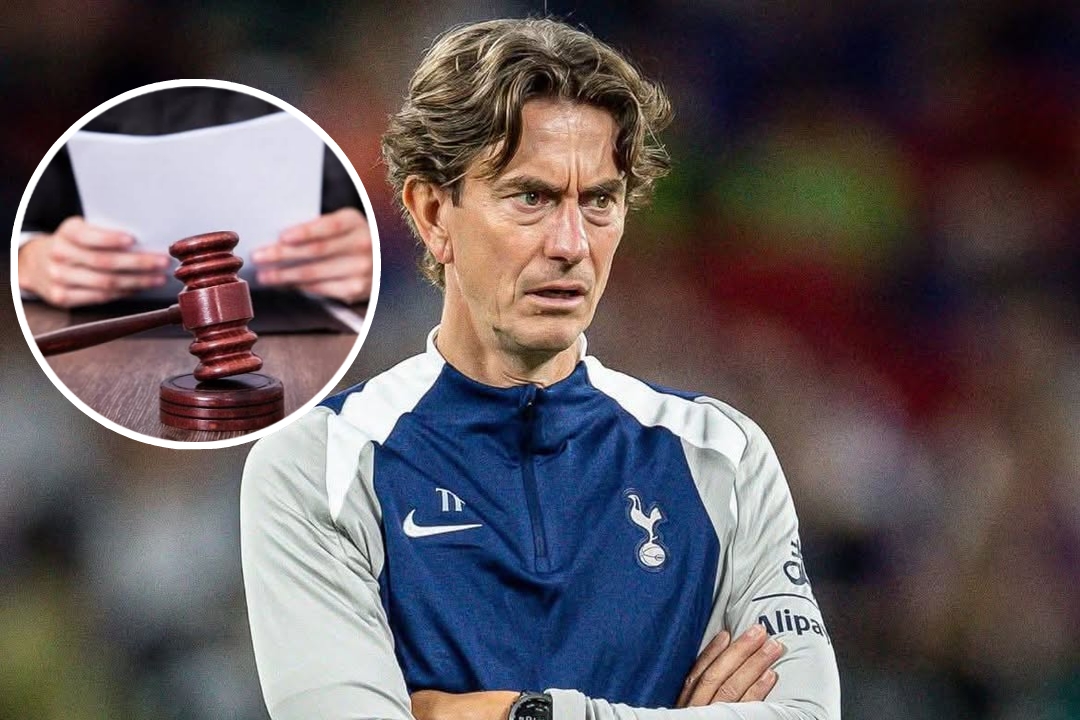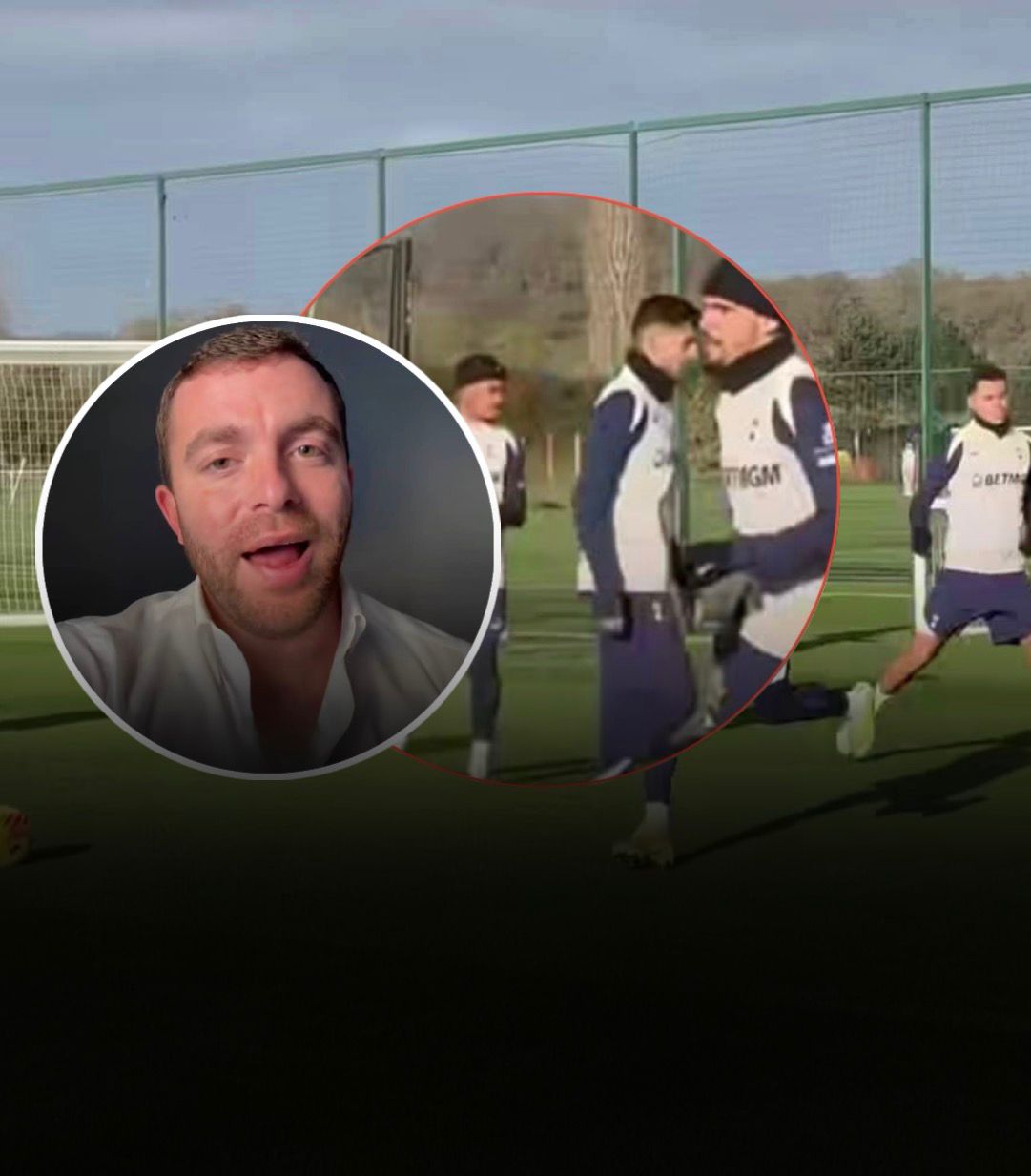THE FA RELEASE WHAT OKAFOR SAID TO MICKY VAN DE VEN ON THE PITCH, GAME TRUELY GONE
Football, the so-called “beautiful game,” has often been a reflection of human emotion—passion, anger, joy, frustration—all played out in front of millions of spectators worldwide. Yet, in recent years, questions have been raised about whether the game is slowly losing its essence due to increasing scrutiny, disciplinary interventions, and the introduction of retrospective punishments. The latest incident involving Leeds United’s Noah Okafor and Tottenham Hotspur defender Micky van de Ven has once again ignited debates around where the line should be drawn.
The Football Association (FA) recently revealed details of what Okafor said and did during a heated on-pitch exchange with Van de Ven. Combined with retrospective action already looming over him for alleged physical misconduct, the revelation has sparked widespread outrage across fans, pundits, and former officials.
The Incident
The clash occurred during Leeds United’s match against Tottenham Hotspur, refereed by Thomas Bramall. Okafor became embroiled in an altercation that quickly escalated after a heavy challenge in midfield. Replays showed him exchanging words with Tottenham defender Micky van de Ven before teammates and officials stepped in to calm the situation.
What initially seemed like a standard bit of on-pitch confrontation grew in significance after cameras picked up not only the verbal exchange but also moments where Okafor appeared to strike out at two separate Spurs players. Referee Thomas Bramall, despite being close to the action, did not issue any red cards at the time—something that has placed further scrutiny on the officiating.
With Bramall allowing play to continue, it left the FA in a position where retrospective action became necessary. Their subsequent release, revealing what Okafor allegedly said to Van de Ven, has turned what might have been remembered as a fiery skirmish into a much larger disciplinary talking point.
Mike Dean’s Verdict
Former Premier League referee Mike Dean offered his assessment of the situation, suggesting that Okafor could face retrospective punishment. Dean stated:
“The FA will then take retrospective action so he’ll get done twice in my opinion because he’s hit two different players in the face on two occasions. He should do. I think he will get done twice.”
Dean’s remarks underline the expectation that the FA will not overlook Okafor’s conduct. If proven, the striker could face a lengthy suspension—possibly six matches if both offences are treated separately.
The FA’s Role and Retrospective Action
The FA’s ability to impose retrospective punishment has always been a double-edged sword. On one hand, it ensures that incidents missed by referees—like in this case, where Bramall did not act decisively—are addressed. On the other, it raises questions about the authority of the match referee and the consistency of officiating.
In Okafor’s case, violent conduct is the main issue. Striking an opponent, even off the ball, usually results in a three-match ban. Should the FA confirm two separate strikes, the punishment will double. This puts Leeds in a precarious situation, as they risk losing one of their key forwards for a significant stretch of games.
The more unusual element, however, was the FA’s choice to release details of the verbal exchange with Van de Ven. Traditionally, governing bodies only highlight discriminatory or abusive language, leaving most on-pitch words as part of the game’s heated nature. By making this public, the FA has blurred the lines between accountability and overexposure.
Thomas Bramall’s Position
As the referee of the match, Thomas Bramall is inevitably under the spotlight. Many fans have questioned why he did not act in real time if Okafor’s actions were as clear as subsequent footage suggests.
Some argue Bramall was trying to keep control of a tense fixture by managing the players rather than resorting to early dismissals, while others see it as a failure to enforce the laws of the game properly. The reliance on retrospective action once again highlights the gaps between what referees see in the moment and what television replays expose afterwards.
Bramall’s handling of the incident is now part of the broader conversation about officiating standards in English football. Referees are under more pressure than ever before, and every decision—or lack thereof—is heavily scrutinized across media platforms.
Fan and Pundit Reactions
The football community has, as usual, been split.
- Tottenham supporters believe Van de Ven was targeted unfairly and demand strong punishment to protect players from both physical and verbal abuse.
- Leeds fans argue that Okafor is being unfairly singled out and that football risks losing its competitive edge if players are punished for every heated confrontation. Many feel Bramall’s leniency on the pitch should have stood, rather than the FA escalating matters afterwards.
- Neutrals are divided: some praise the FA’s transparency, while others criticize it as unnecessary drama that undermines the sanctity of what happens on the pitch.
The “Game’s Gone” Debate
The phrase “the game’s gone” has become common in football discourse, particularly when traditional physicality and passion are curtailed by strict rules or retrospective action.
Okafor’s clash with Van de Ven feeds into this narrative. While violent conduct cannot be ignored, many argue that releasing the details of verbal exchanges sets a dangerous precedent where natural emotions in high-pressure matches are overanalyzed. Fans fear the sport is becoming over-sanitized, losing the very intensity that makes it compelling.
The Impact on Leeds United
Leeds United are the team most directly affected by these developments. Okafor has been an important figure in their attack, offering speed, creativity, and a direct goal threat. Losing him for potentially multiple games would be a huge blow to Daniel Farke’s plans.
With key fixtures ahead, Leeds’ promotion or survival ambitions could be derailed. This also places greater strain on squad depth and forces Farke to rethink his tactical approach.
Broader Implications
This incident raises broader issues that extend beyond Leeds or Tottenham:
- Refereeing Authority – If retrospective punishments frequently correct referees’ decisions, what does that say about their authority on match day? Bramall’s decision not to act has now been effectively overturned, which could diminish trust in referees.
- Consistency – Fans will closely compare this case with others. If Okafor receives a heavy ban, yet similar incidents elsewhere are treated lightly, accusations of bias will grow.
- VAR’s Role – With technology in place, why was this not reviewed more robustly during the match? Shouldn’t VAR catch what Bramall may have missed?
- The Spirit of the Game – How much should governing bodies intervene in what players say or do during high-intensity moments? Too much scrutiny risks turning football into a sterile contest devoid of raw emotion.
Conclusion
The fallout from Noah Okafor’s confrontation with Micky van de Ven, overseen by referee Thomas Bramall, is about more than just one heated incident. It shines a light on football’s ongoing struggles with officiating, consistency, and the balance between passion and discipline.
While Okafor is almost certain to face retrospective action, the bigger question is whether football is moving in a direction that fans truly want. For some, accountability and fairness are non-negotiable. For others, the game’s heart and soul lie in its intensity, its arguments, and even its occasional flashpoints.
Whatever the outcome, the debate around whether “the game’s truly gone” will only grow louder—and the role of referees like Bramall, alongside the FA, will continue to come under the microscope.








Post Comment